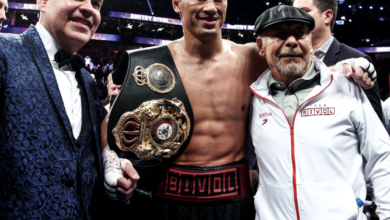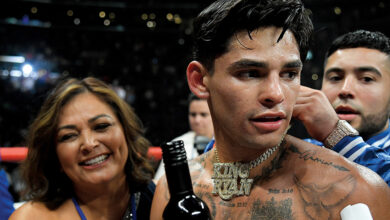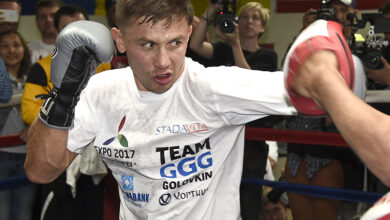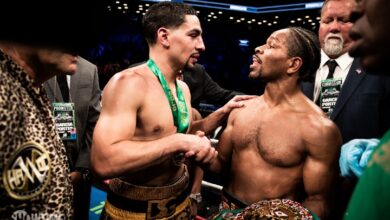It’s not easy watching your son or daughter box.
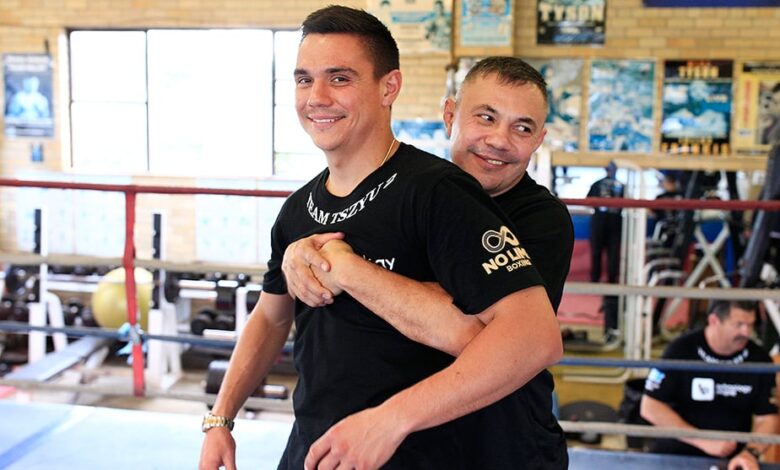
By Elliot Worsell
IF YOU’VE ever walked through a park on a Sunday morning and come across a football pitch and a bunch of screaming kids, you’ll know that there’s no sound more terrifying than the sound of parents watching those screaming kids from the sidelines. A mix of encouragement, negativity and personal regret, it comes in waves, this wall of sound, and increases in volume whenever a controversial decision is made or a goal is scored or conceded.
Hearing the noises as a passerby is one thing, but hearing them as a son or daughter is another. For them, the ones these orders are aimed at, there is no escape and all they can do to keep quiet is to be perfect – or at least victorious.
Often they fit the same profile, these parents. Either they care too much, want to win too much, or have invested too much of their own hopes and dreams in a child whose interests are now a fraction of their own. They live vicariously through these children, either because their own lives have become too boring to comprehend, or because they see themselves in the child, the way they used to, and see the child’s journey as a performance after a dress rehearsal.
Whatever the motivation, this behavior is normal whenever there is a stake in winning or losing. It is normal on the sidelines of football and it is also normal in boxing, a sport where there is much more at stake than just winning or losing. In fact, when one considers exactly what is at stake when two children or adults step into the ring, is it any wonder that boxing boasts some of the most bizarre, overbearing, and annoying dads in all of professional sports?
Probably not. Perhaps, when you think about it, the idea of seeing your son or daughter in the ring fighting another human being whose goal is to render them unconscious is the most terrifying prospect any parent can imagine. In that situation, you worry less about them winning and more about them coming home, physically and mentally, the same child you went to the fight with. Anything else, in boxing, is a bonus; winning is not a “W” but a relief.
Of course, at the highest levels, such thoughts are easier to suppress or ignore. After all, there are big money to be made and titles to be won and family legacies to be established. However, the underlying ingredients and fears remain. Yet you, as a parent, have to watch your son or daughter trade blows with another human being and acknowledge that, regardless of their abilities, things can change in the blink of an eye.
It takes a special kind of person to entertain this. It requires a level of trust that most parents lack, as well as the ability to detach from love and believe that, despite all the difficulties, everything will be okay in the end. That, for a coach or friend, is difficult enough, but for a parent who is almost predisposed to expect the worst when it comes to their child, such emotions can often lead to outbursts and behaviors that you wouldn’t normally expect to see in the parents of, say, tennis players or swimmers.

John Fury Goes Wild (Misfits Boxing)
For example, much has been said recently about the behaviour of the fathers of Tyson Fury, Devin Haney and Teofimo Lopez, all of whom have either tried to gain their children’s attention or done or said something incredibly bad. However, this, while never a good look, is easily explained when you consider and appreciate what these men – men who are hardly emotionally mature – endured in the days and hours before their children entered the ring. That doesn’t make any of it right, no, but we must at least try to understand how unique an experience it is to see your child in a boxing ring, where of course there is danger everywhere. At the very least, we must accept that unless we have been in this situation, it is probably unfair to comment on how we or anyone else should react.
On the other hand, it is also true that many parents, both mothers and fathers, are able to keep their cool when watching their children box. Even those close to the action, whether as part of the entourage or as part of the coaching staff, can conduct themselves with class and dignity that seems to surpass the likes of Messrs Fury, Haney and Lopez. They hold back their emotions; they do not want to share the limelight.
Case in point: Kostya Tszyu. As Tim’s father, he had every right to push for greater involvement in his son’s burgeoning career but never did, perhaps because he was content with his own accomplishments and knew that it was now time for the next generation to prosper. Perhaps, ultimately, the key to being a supportive father to a struggling son is to be content; content with both your own career and the idea that your son will now receive everything that was once his.
For some parents, this is clearly a difficult thing to accept. Furthermore, and as if to prove the point, there is a direct correlation between the worst-behaved dads in boxing and their own performance in the ring. Some parents – the more famous ones, that is – are watching their kids try to replicate their own successes, while others are doing it all for the first time, thus using their son or daughter as an avatar; their own status and identity are entirely dependent on whether they rise or fall. In this scenario, you see chaos, outbursts, hunger for attention. In this scenario, you see the same look in the eyes of boxers as you see in the eyes of kids in the park on a Sunday morning, each wondering if today will be the day Dad makes good on his threat to “explode” the referee.
